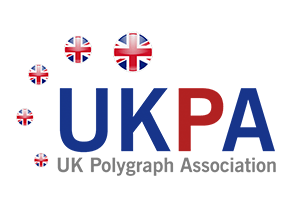How to find the right investigator
Do you need a private investigator? Whether you’re searching for a missing person, gathering evidence for a civil lawsuit, or conducting a complex corporate investigation, a good investigator can be an invaluable asset. But with so many options out there, how do you choose the right one? This comprehensive guide will walk you through the process, covering essential qualifications, necessary certifications, and key questions to ask to ensure you make the best decision.
1. Understand the type of investigation you need.
Before you even begin your search, it’s crucial to clearly define the scope of your situation, your desired outcome, and the resources you have available. Take the time to determine if you require a criminal, civil, or corporate investigation, as each type demands different expertise and approaches. Consider potential legal implications, ethical considerations, and relevant regulations that might affect the investigation. Additionally, reflect on the potential impact of the investigation on all parties involved. A clear and precise understanding of your specific needs will ensure that you select an investigator with the appropriate skills and experience, leading to a more thorough and effective investigation.
2. Ask for referrals from trusted sources.
Referrals are an excellent and often overlooked way to find reliable services. Start by reaching out to family, friends, or colleagues who may have previously utilized investigative services. Their personal experiences and recommendations can provide valuable insights and lead you to trustworthy professionals. Beyond your immediate network, explore online forums, community groups, and reputable review sites that specialize in private investigation services. While online reviews can be helpful, always cross-reference information and conduct thorough research before committing to any service. Tapping into trusted networks provides honest, firsthand feedback and significantly increases your chances of choosing a high-quality professional.
3. Check with local investigator associations.
Local and national investigator associations are invaluable resources for finding qualified and reputable professionals. These organizations often maintain directories of licensed and certified investigators, and many can provide information on their members’ specialties and track records. They can also offer valuable insights into industry standards, ethical guidelines, and legal requirements for private investigators in your area. Contacting your local association is a crucial step in conducting your due diligence, helping you make informed decisions and protecting you from potential risks associated with unqualified or unethical practitioners. Don’t take chances; leverage these associations for comprehensive background checks and peace of mind.
4. Contact several investigative firms for information and quotes.
It’s always wise to gather detailed information and competitive quotes from a few different firms before making a final decision. During these initial consultations, be prepared to discuss the specifics of your case, providing enough detail for the firms to understand your needs without revealing overly sensitive information prematurely. Ask about their experience and expertise in cases similar to yours, inquire about their methodologies, and understand their communication protocols. Most importantly, compare their pricing structures, including hourly rates, retainer fees, and any additional costs. The more information you gather, the better equipped you’ll be to objectively compare services and choose the best fit for your needs and budget.
5. Verify licenses and certifications.
This step is non-negotiable. Before engaging any investigative firm, it is absolutely essential to verify that they are properly licensed and certified according to state and local regulations. Licensing requirements vary significantly by jurisdiction, so contact your state and local licensing agencies for the most up-to-date and accurate information. This due diligence not only provides peace of mind but also confirms that you are working with professionals who meet established industry standards, adhere to legal frameworks, and are accountable for their actions. Never assume; always verify their credentials.
6. Ensure all contracts are in writing with clearly outlined fees.
A well-drafted, written contract is fundamental to a successful and transparent working relationship. It prevents misunderstandings and protects both parties by clearly detailing the scope of work, all fees, payment schedules, and the terms of service. The contract should explicitly state what services will be provided, the expected duration of the investigation, how communication will be handled, and what happens in unforeseen circumstances. This level of clarity fosters a positive, productive, and trusting working relationship. Never rely on verbal agreements for such critical services; insist on getting everything in writing and review it thoroughly before signing.
With thorough research, diligent verification, and clear communication, you can confidently choose an experienced and reputable investigative firm. Your ultimate decision should be based on who best meets your specific needs, aligns with your expectations, and operates within agreed-upon terms. Take the time to fully understand the requirements, ask pertinent questions, and maintain open lines of communication throughout the entire process to ensure a successful and satisfactory outcome.






